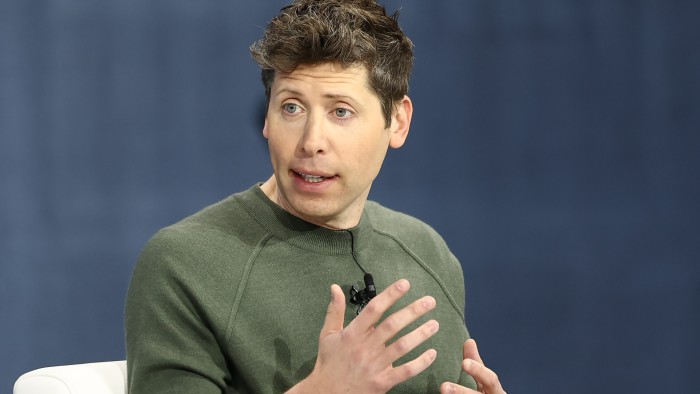Unlock the Editor’s Digest for free
Roula Khalaf, Editor of the FT, selects her favourite stories in this weekly newsletter.
OpenAI has raised $40bn in new funding from SoftBank and other investors, valuing the ChatGPT maker at $300bn as it becomes one of the best-funded private start-ups in the world.
SoftBank was providing 75 per cent of the funding, according to one person familiar with the finances, while 25 per cent would be contributed by additional investors including Microsoft, Coatue Management, Altimeter Capital and Thrive Capital. The Financial Times first reported SoftBank’s investment.
The financing would be provided in two parts, an initial $10bn with the following $30bn to be invested by the end of 2025, the person familiar added.
The latest funding comes as the San Francisco-based company transforms from a complex non-profit structure into a more conventional for-profit company. This conversion is required to be completed by the end of this year, or SoftBank has the option to reduce its total contribution to $20bn, one person familiar with the round said.
The post-money valuation of $300bn would rank OpenAI as the 27th biggest company in the S&P 500, were it to be listed today, reflecting the exuberance towards the artificial intelligence sector. That would make it larger than oil major Chevron and slightly smaller than Coca-Cola. OpenAI most recently raised $6.6bn in October at a valuation of $157bn.
“This investment helps us push the frontier and make AI more useful in everyday life,” OpenAI chief executive Sam Altman said.
Masayoshi Son, SoftBank’s founder, described AI as a “defining force shaping humanity’s future” and that the Japanese company’s “expanded partnership with OpenAI accelerates our shared vision to unlock its full potential”.
Earlier on Monday, OpenAI announced that it would release a so-called open-weights AI model in the coming months, as it contends with fierce competition from rival open models from China’s DeepSeek and Meta’s Llama.
A cheaper and more accessible model would represent a shift from OpenAI’s traditional approach of charging users and enterprises through subscriptions to products, such as ChatGPT, and developers through access to its application programming interface.
“We’ve been thinking about this for a long time, but other priorities took precedence. Now it feels important to do,” Altman said in an X post on Monday.
Open-weights models provide details on how the systems function — the so-called weights — and make basic code publicly available so that developers can run the model for their own use cases. They represent a more limited version of open-source models, which provide fuller information, such as data sets and the code needed to fully train a model from scratch. Open models are typically cheaper to use and can be customised for specific use cases.
The company did not provide details on how it might monetise the open model, which could be through customisation or commercial licensing.
Chinese start-up DeepSeek caused shockwaves earlier this year when it released its R1 open-weights model. The program displayed advanced capabilities, including reasoning, where it would think through queries and process them in more detail, but was apparently developed at a much lower cost than other leading edge AI programs from Silicon Valley.
In a Reddit post days after DeepSeek’s release, Altman said he believed OpenAI had “been on the wrong side of history” and “need[ed] to figure out a different open source strategy”.
Source link









